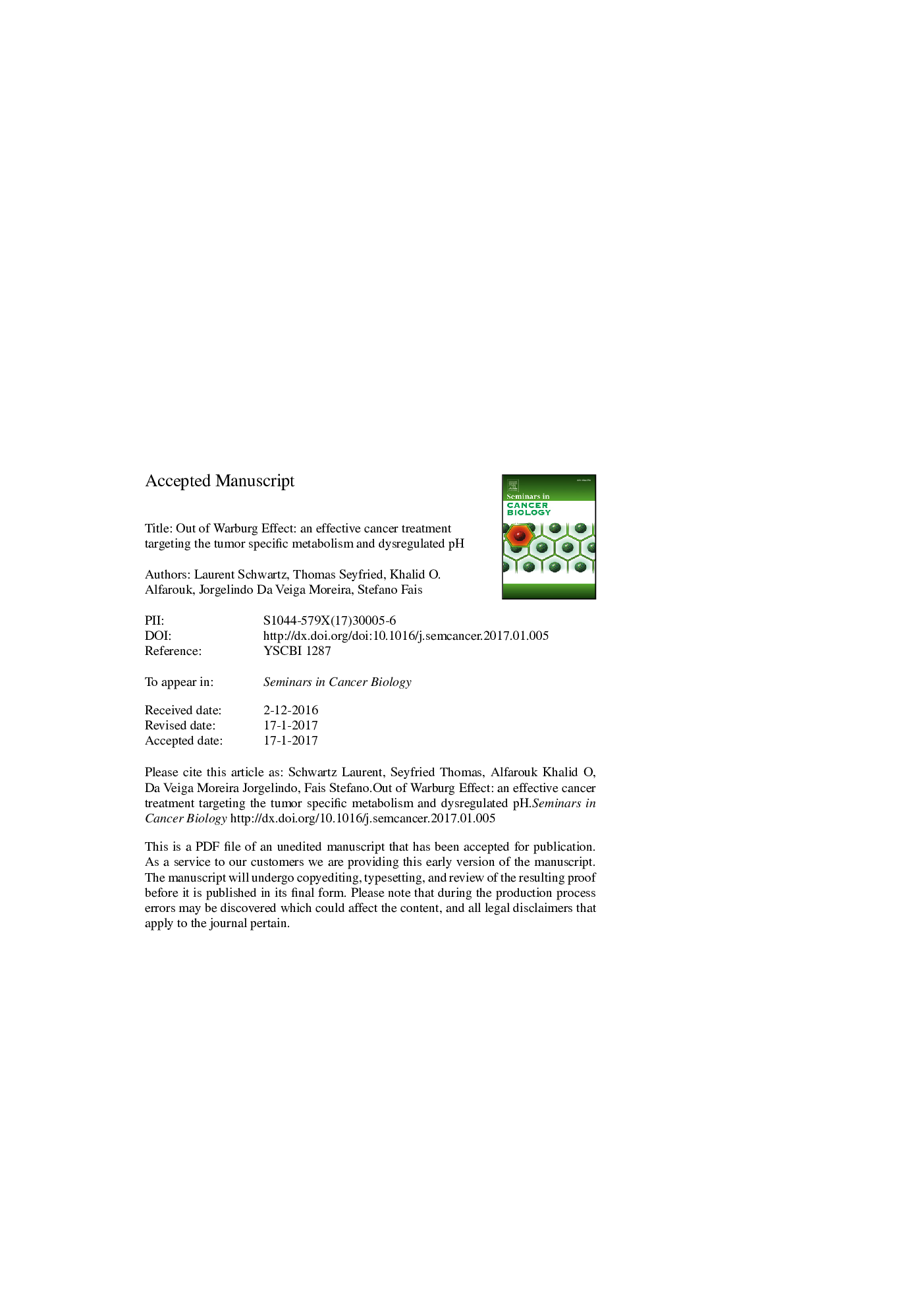| Article ID | Journal | Published Year | Pages | File Type |
|---|---|---|---|---|
| 8361951 | Seminars in Cancer Biology | 2017 | 16 Pages |
Abstract
As stated by Otto Warburg nearly a century ago, cancer is a metabolic disease, a fermentation caused by malfunctioning mitochondria, resulting in increased anabolism and decreased catabolism. Treatment should, therefore, aim at restoring the energy yield. To decrease anabolism, glucose uptake should be reduced (ketogenic diet). To increase catabolism, the oxidative phosphorylation should be restored. Treatment with a combination of α-lipoic acid and hydroxycitrate has been shown to be effective in multiple animal models. This treatment, in combination with conventional chemotherapy, has yielded extremely encouraging results in glioblastoma, brain metastasis and lung cancer. Randomized trials are necessary to confirm these preliminary data. The major limitation is the fact that the combination of α-lipoic acid and hydroxycitrate can only be effective if the mitochondria are still present and/or functional. That may not be the case in the most aggressive tumors. The increased intracellular alkalosis is a strong mitogenic signal, which bypasses most inhibitory signals. Concomitant correction of this alkalosis may be a very effective treatment in case of mitochondrial failure.
Keywords
Related Topics
Life Sciences
Biochemistry, Genetics and Molecular Biology
Biochemistry
Authors
Laurent Schwartz, Thomas Seyfried, Khalid O. Alfarouk, Jorgelindo Da Veiga Moreira, Stefano Fais,
